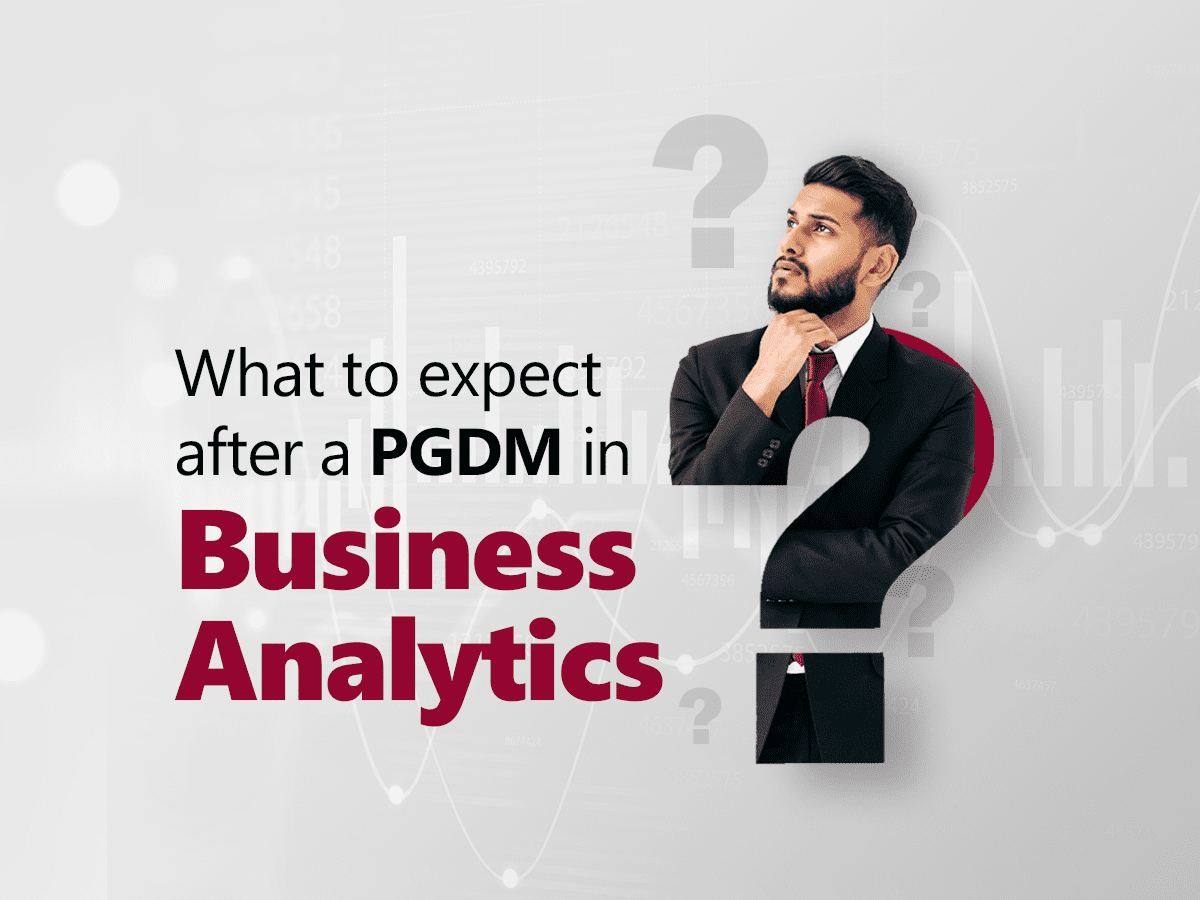Data is the new oil. Oil, only when refined, can create products of value such as chemicals, natural gas, etc. Similarly, data must be cleansed, transformed, and analysed to derive value. If you are wondering what ‘value’ is, that’s exactly what a business analytics course will uncover. It can help you to understand the process of analysing data generated during business operations. If a company can leverage this data to make well-informed strategic decisions, the probability of the decisions being correct is very high. Such decisions, which are rich in data-driven insights, can create a meaningful impact on a company’s top line and bottom line.
A Post Graduate Diploma (PGDM) in Business Analytics will enable you to play a key role in transforming the data generated across the various departments of the company into rich insights. It is probably the only role wherein even at the junior-most level in a company, your work will significantly impact its overall growth and help to accelerate its business prospects.
Here’s a list of career opportunities that can be pursued post a PGDM in Business Analytics:
1. Data Scientist: Data can be classified as ‘structured’ data (which is in rows, columns, and tables) and ‘unstructured’ data that could come from email, audio files, videos, social media posts, call center data etc. As a huge proportion of the relevant data across an organization is ‘unstructured’, it is critical to analyze its impact on business and getting an org-level view of its impact as against analyzing data in departmental siloes. That’s exactly where a data scientist comes in. With his expertise in data, mathematical models, statistics, etc., a data scientist can sieve useful insights from humongous volumes of
data. Companies across the world are extensively seeking talented data scientists. A PGDM in business analytics will help you to become a preferred choice of companies that are looking for data scientists and analysts.
2. Analysts across key functions: The scope of a PGDM in Business analytics is wide ranging. It is because the course teaches various aspects of business including operations, finance, marketing etc. and empowers you with the capabilities to transform the data generated from daily operations across these departments into rich business insights. For instance, a person with a PGDM in business analytics is equipped to help a company to streamline its supply chain, ensure optimum economic order quantity to reduce wastage, and enable the company to have ‘Just in Time’ inventory across its point of sale to keep losses to the minimum. Similarly, they can work on various models and share insights that can sharpen marketing campaigns, enhance customer lifetime value (CLTV), and help to onboard more customers by curating offers as per demographic data and buying pattern-based insights.
3. Chief Data Architect: Before attaining a PGDM in Business Analytics, you might have graduated in technology and may have relevant work experience. If so, a PGDM in Business Analytics can add a new dimension to your career prospects. We live in an age of digital/ mobile-first startups that champion the cause of ‘convenience’ that we so dearly love. Such apps that help you get everything at your doorsteps with just a click (literally), need very robust data frameworks and models to enable real-time decision-making with respect to prices, routes of delivery, bundled offerings etc. To manage these aspects seamlessly, companies hire data architects who are the custodians of the organizations’ technology infrastructure that
powers or holds the data. Their technical understanding, knowledge of domains and functions, and ability to liberate data from traditional siloes is invaluable. They can build the required architecture and frameworks to derive rich insights from the data that can be viewed by strategic leaders of the business, not in isolation but in sync with various other parameters to gauge organizational level impact. Hence, a chief data architect is pivotal in creating a digitally transformed data- powered business.
Data and Business Analytics is a very nascent field and companies are still discovering the true potential of the data that they have. This includes the current data that they generate and the data that they must have archived. The scope of a PGDM in Business Analytics will further amplify as companies start discovering means of creating ‘impact’ with the data that they generate. Hence, a PGDM in Business Analytics is not only a course for today’s times but also for the future. It will stay highly relevant in the times to come. Hence, a PGDM in Business Analytics will open a plethora of opportunities across sectors, domains, and geographies for a student. What more can one ask for?



